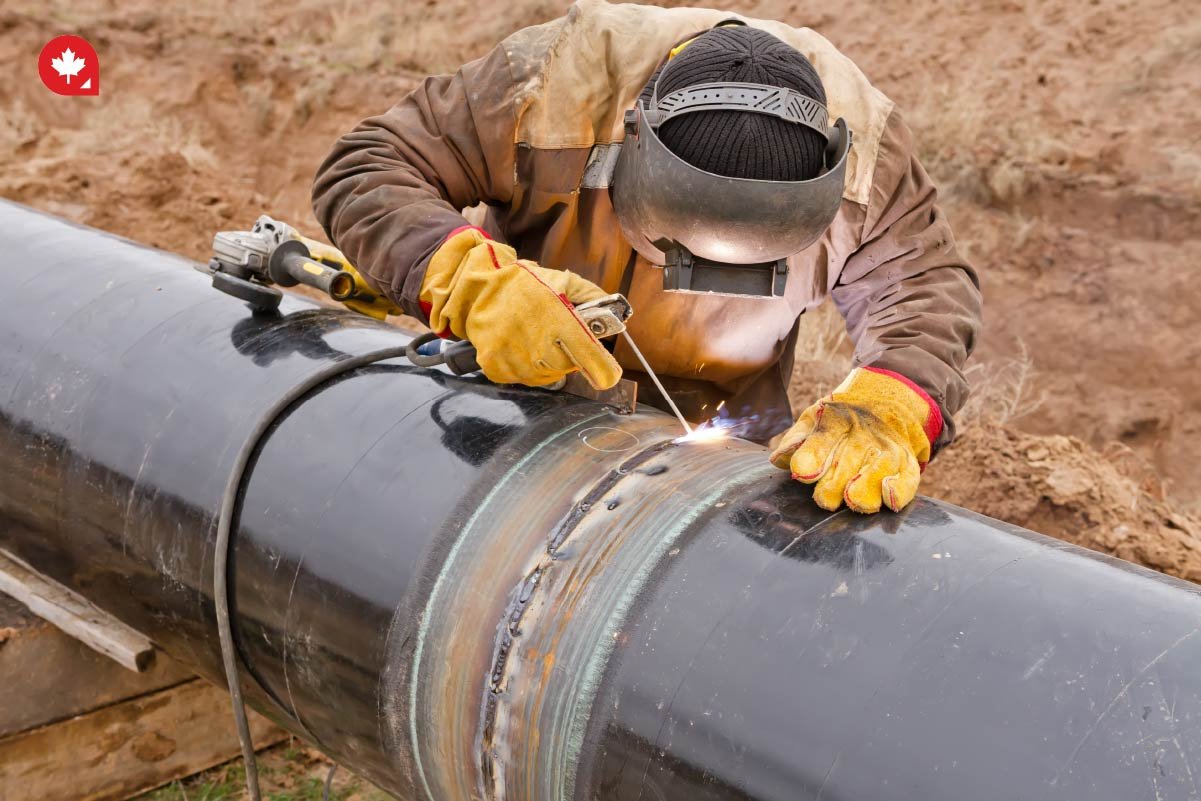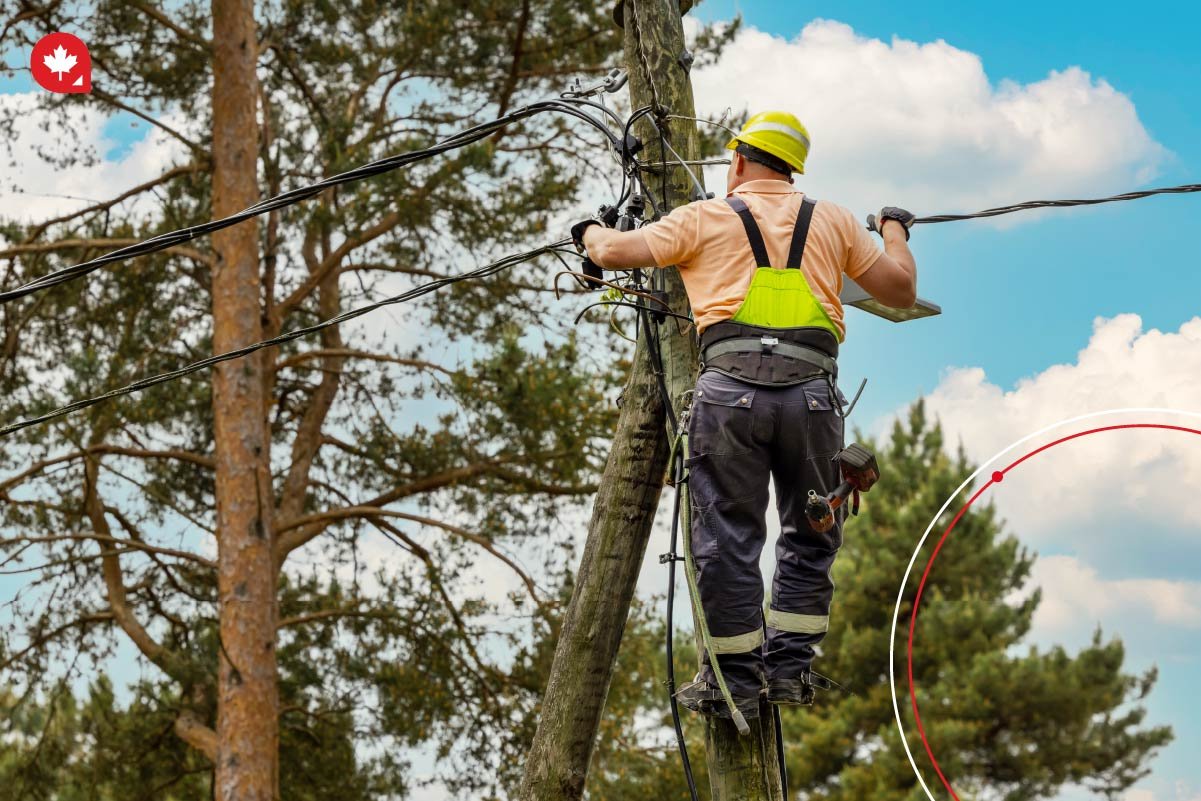Because of low birth and early retirement rates, Canada’s workforce decreases yearly. That’s why Canada hopes to welcome 465,000 immigrants to the beautiful country in 2023. By inviting people from all over the world to live and work in Canada, the country’s economy can continue to grow and remain its powerhouse.
Because of its strong economy, Canada can afford to pay its tradespeople a high income as incentives to keep trade industries running. Find out if your job is on this list of the highest paying jobs in canada in 2023, and start planning your move to a country that appreciates your hard work and skills.
Over 300 skilled crafts are available to work across the country, so there's a good chance you'll find a high-paying job that will last a long time. There are specialized trades that pay more than others. Skilled trades are an expanding field that allows people who want to avoid working in an office to undertake hands-on work.
The Highest Paying Trades in Canada
When it comes to finding the highest paying trade jobs in Canada, there are several lucrative options available. These trades offer excellent earning potential and provide skilled professionals with rewarding careers. According to data from Talent.com, the average wages for these trades are competitive and attractive to job seekers looking for high paying jobs in Canada. Let's explore some of the highest paying trades and their average wages.
Elevator Mechanic
- NOC Code: 72406
- Average Wage: CAD 74,100 per year
Elevator mechanics are skilled tradespeople responsible for installing, maintaining, and repairing elevators and escalators. They work with complex systems and specialized tools to ensure vertical transportation systems' safe and efficient operation.
Powerline Technician
- NOC Code: 22310
- Average Wage: CAD 84,708 per year
Powerline technicians work with electrical power systems, including installing, maintaining, and repairing high-voltage transmission lines. They play a crucial role in ensuring the reliability and safety of power distribution networks.
Steamfitter-Pipefitter
- NOC Code: 72301
- Average Wage: CAD 79,780 per year
Steamfitters and pipefitters are tradespeople who install, maintain, and repair piping systems used for heating, cooling, and industrial processes. They work with various types of pipes, fittings, and valves to ensure the proper functioning of these systems.
Heavy Duty Equipment Technician
- NOC Code: 72401
- Average Wage: CAD 72,150 per year
Heavy-duty equipment technicians specialize in maintaining and repairing large machinery used in industries such as construction, mining, and forestry. They diagnose and fix mechanical, electrical, and hydraulic issues to keep the equipment running smoothly.
Industrial Electrician
- NOC Code: 72201
- Average Wage: CAD 68,473 per year
Industrial electricians install, maintain, and repair electrical systems in industrial settings. They work with complex machinery, motors, control systems, and electrical panels to ensure the proper functioning of equipment and adherence to safety standards.
Welder
- NOC Code: 72106
- Average Wage: CAD 95,235 per year
Welders are skilled tradespeople who join different metal components together using various welding techniques. They work with materials such as steel, aluminum, and stainless steel, and are in demand in industries like construction, manufacturing, and automotive.
Plumber
- NOC Code: 72300
- Average Wage: CAD 101,376 per year
Plumbers are tradespeople who specialize in installing, maintaining, and repairing plumbing systems. They work with pipes, fixtures, and appliances to ensure water, drainage, and gas flow in residential, commercial, and industrial buildings.
Millwright
- NOC Code: 72400
- Average Wage: CAD 91,584 per year
Millwrights or industrial mechanics should be adaptable to changing environments. You could work for a factory or plant and be able to operate, install, replace and repair machinery. Reading project blueprints and troubleshooting equipment such as pumps and electrical systems will be part of your job description.
Bricklayer/Mason
- NOC Code: 72320
- Average Wage: CAD 76, 281per year
Bricklayers and masons are tradespeople who specialize in building and repairing structures using bricks, stones, and other materials. They have expertise in masonry techniques, ensuring the proper construction and restoration of buildings with precision and craftsmanship.
Refrigeration and Air Conditioning Mechanic
- NOC Code: 72402
- Average Wage: CAD 80,495 per year
Refrigeration and air conditioning mechanics install, maintain, and repair cooling and refrigeration systems. They work with various equipment, such as air conditioners, refrigerators, and HVAC systems, ensuring efficient operation and climate control in residential, commercial, and industrial settings.
When it comes to finding the highest paying trade jobs in Canada, several lucrative options are available. These trades offer excellent earning potential and provide skilled professionals with rewarding careers. However, it's important to note that average wages may vary across provinces and regions within Canada. Local demand, cost of living, and industry-specific conditions can influence salary levels. Researching and considering specific provincial wage data when exploring these high paying trades in different parts of the country is advisable. Take that into consideration when you apply for jobs in Canada.
If you're looking for the highest paying trade jobs in Canada, you'll find a range of options that offer excellent earning potential. Elevator mechanics, powerline technicians, and industrial electricians are among the highest paying trades in Canada. These trades provide lucrative opportunities for skilled professionals seeking high paying jobs in Canada. So, if you're wondering what trade makes the most money, consider exploring these in-demand trades that offer some of the highest salaries in the country.
Work in Canada in One of The Highest Paying Trades

Pathways for Trade Workers in Canada
There are many ways you can work in Canada as a tradeworker for individuals interested in working in one of the highest paying trades. Two popular programs are the Temporary Foreign Worker Program (TFWP) and the Federal Skilled Trades Program (FSTP).
The TFWP allows employers in Canada to hire foreign workers to fill temporary skill shortages. Eligible individuals with a job offer in a high-demand trade can apply for a work permit under this program.
The FSTP, on the other hand, is a permanent immigration program designed for skilled tradespeople who want to become Canadian permanent residents. It requires meeting specific criteria and demonstrating proficiency in the chosen trade.
Temporary Foreign Worker Program (TFWP) Requirements
| Requirement | Description |
|---|---|
| Job Offer | Must have a valid job offer from a Canadian employer. |
| Labour Market Impact Assessment (LMIA) | Employer must obtain a positive LMIA from Employment and Social Development Canada (ESDC) indicating a need to hire a foreign worker. |
| Qualifications | Must possess the required qualifications, skills, and experience for the specific trade or occupation. |
| Language Proficiency | Depending on the trade or occupation, applicants may need to demonstrate proficiency in English or French. |
| Work Permit | Applicants must apply for and obtain a valid work permit before entering Canada. |
| Proof of Financial Resources | Applicants may need to provide proof of sufficient funds to support themselves and their dependents during their stay in Canada. |
| Medical Examination | Applicants may be required to undergo a medical examination to ensure they meet the health requirements. |
| Admissibility | Applicants must meet admissibility criteria, including criminal and security checks. |
Federal Skilled Trades Program (FSTP) Requirements
| Requirement | Description |
|---|---|
| Skilled Trade | Must have an eligible skilled trade occupation as defined by the National Occupational Classification (NOC) system. |
| Work Experience | Must have at least two years of full-time work experience (or equivalent part-time) in the skilled trade within the past five years. |
| Job Offer or Certificate of Qualification | Applicants must either have a valid job offer for at least one year in Canada OR a certificate of qualification issued by a Canadian provincial or territorial authority. |
| Language Proficiency | Applicants must demonstrate proficiency in English or French by taking an approved language test (e.g., IELTS, CELPIP, or TEF). |
| Proof of Funds | Applicants must show they have sufficient funds to support themselves and their families in Canada. |
| Admissibility | Applicants must meet admissibility criteria, including health and security checks. |
Certifications
In addition to the work visa routes, certifications play a crucial role in pursuing a career in one of the highest paying trades in Canada. One highly recognized certification is the Red Seal endorsement.
The Red Seal endorsement, also known as Interprovincial Standards Red Seal Program, is a nationally recognized certification that validates the skills and competency of tradespeople across Canada. It signifies that an individual has met the industry's national standards and can work in their designated trade in any Canadian province or territory. Having a Red Seal endorsement can enhance job prospects and earning potential for tradespeople in Canada.
Why Work in Canada as a Trade Worker?

Canada offers an enticing opportunity for trade workers seeking a rewarding career path. Its high pay and excellent quality of life has become a sought-after destination for skilled professionals in various trades. Here are a few reasons why working in Canada as a trade worker can be an appealing choice:
High Pay
One of the key attractions for trade workers in Canada is the high pay that comes with these professions. Many trades, such as elevator mechanics, powerline technicians, and industrial electricians, are among the highest paying occupations in the country. The average wages in these trades can provide a comfortable standard of living and financial security for individuals and their families.
Good Quality of Life
Canada is known for its exceptional quality of life, making it an ideal place to work and settle down as a trade worker. The country offers a safe and inclusive environment, excellent healthcare, high educational standards, and a clean and beautiful natural landscape. Canada's cities consistently rank among the best places to live globally, with their vibrant cultural scenes, recreational opportunities, and diverse communities. Life in Canada is generally first-world.
Job Security and Demand
Trade workers are in high demand across Canada. The country's growing infrastructure projects, construction industry, and expanding industrial sectors create a steady demand for skilled tradespeople. Moreover, Canada faces a shortage of qualified trade workers, leading to excellent job security and long-term career prospects for those with the necessary skills and experience.
Red Seal Certification
Canada recognizes and values the expertise of trade workers through the Red Seal program. The Red Seal endorsement is a nationally recognized certification that validates the skills and knowledge of tradespeople. Holding a Red Seal designation enhances employability and allows trade workers to practice their trade across different provinces and territories, providing greater flexibility and opportunities.
FAQs

What is the Red Seal Program?
The Red Seal Program, also known as the Interprovincial Standards Red Seal Program, is a national certification program in Canada. It allows tradespeople with a valid trade certification from one province or territory to work in their designated trade in other provinces and territories across the country.
The Red Seal endorsement signifies that the tradesperson meets the national industry standards and is qualified to work in their trade across provincial and territorial borders.
Are There Any Additional Requirements for Working in Different Provinces?
In addition to having a trade certification and, if applicable, a Red Seal endorsement, there may be additional requirements when working in different provinces. Some provinces have specific licensing or registration processes that trade workers must complete to practice their trade within that province.
It is essential to research and understand the specific requirements of the province you intend to work in and ensure compliance with additional regulations or licensing procedures. In addition, different provinces will offer you different lifestyles. Do your research before settling on one.
Can I Transfer My Trade Certification to Another Province in Canada?
While trade certifications are generally transferable across provinces, it is important to note that each province or territory may have its specific requirements and processes for transferring or obtaining certification. Contacting the regulatory authority or apprenticeship board in the province you wish to work in is recommended to understand the transfer process and any additional steps you may need.




